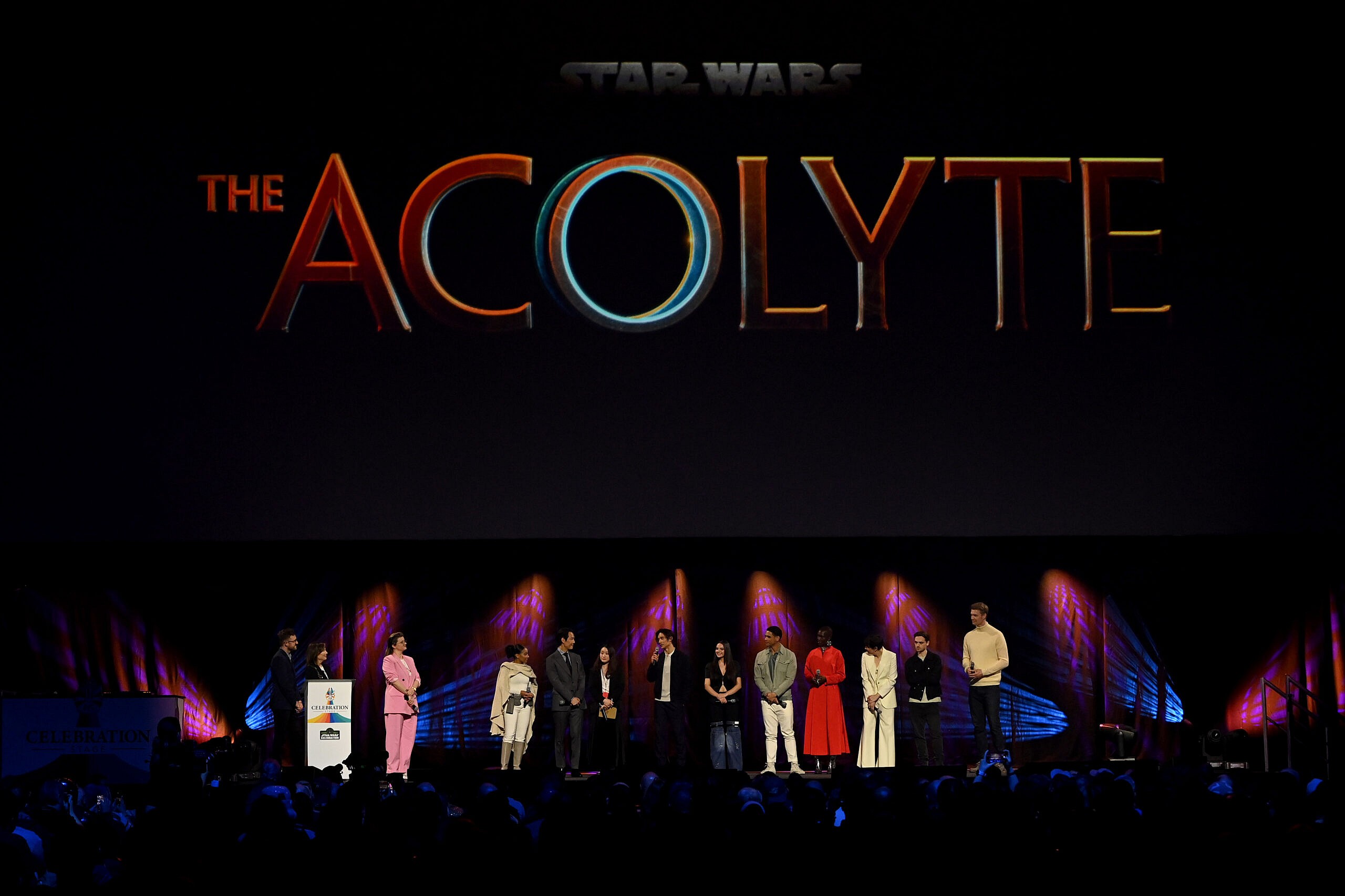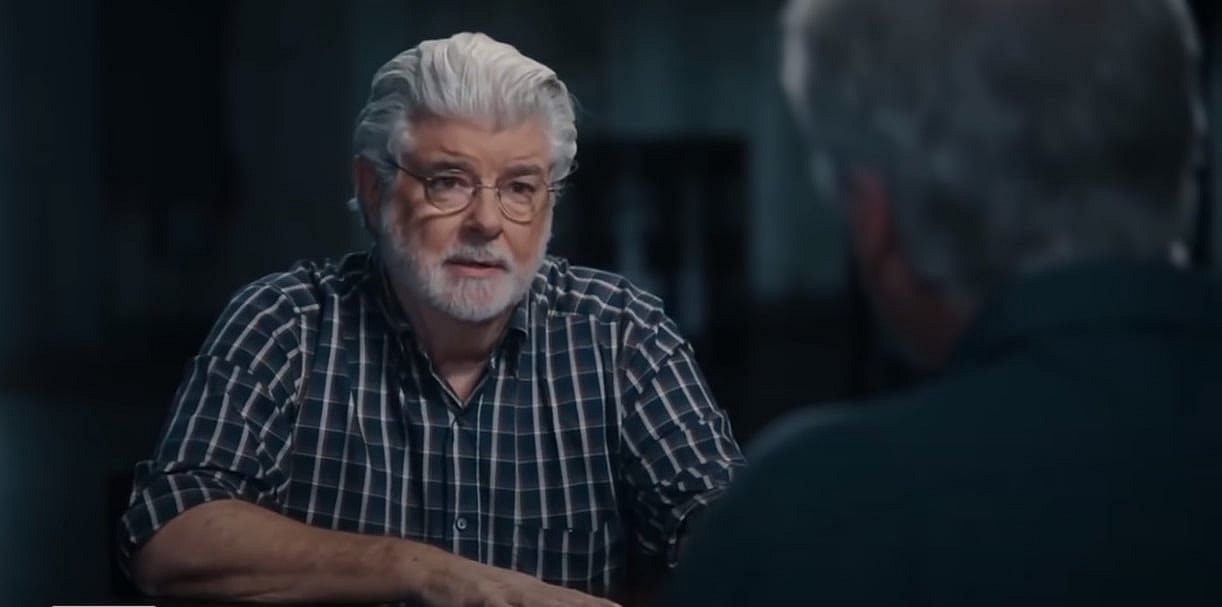‘The Acolyte’ Actor Charlie Barnett Says “The Best Parts About Star Wars Is There Is No Good Or Evil, Depends On What Side You’re Standing On”

The Acolyte actor Charlie Barnett recently made an appearance at Star Wars Celebration, where he continued to reveal how The Walt Disney Company and Lucasfilm are radically reshaping Star Wars.

Barnett took to the stage of Star Wars Celebration with his co-stars Dafne Keen and Manny Jacinto, where the three had a brief discussion about the show with Barnett revealing he plays a Jedi Knight and that the series is set towards the tail of end of Lucasfilm’s High Republic era.
As their time on the stage began to wrap up, the trio were asked to describe The Acolyte in less than five words.
Barnett responded, “I would say a ‘battle for power.'” He then continued, “I mean the best parts about Star Wars is there is no good or evil. It depends on what side you are standing on, truly.”
He explained, “You can look at any angle and see yourself relayed through all the characters: Darth [Vader] to Luke. You know what I’m saying.”
Barnett then went on to provide more details on how The Acolyte reshapes Star Wars, “This show is truly about that balance of power and balance of good versus evil. And realizing so much of it starts at the root, truly.”

This injection of moral relativism, or the view there is no absolute truth or there is no true good or evil, into Star Wars is something George Lucas did not include in his original films and dare I say would object to.
In fact, Lucas was asked about what interested him about the conflict of good and evil in Star Wars during an appearance on American Voices with Bill Bradley back in 2012.
Lucas answered, “Well, the conflict between good and evil is the basic conflict. The universal question is, ‘Am I a good person?’ … But, of course, that’s a very complicated question. And it’s something you have to ponder because you’re doing it every day, you’re saying should I do this or shouldn’t I do this?”

Lucas later detailed, “To me it’s really about a compassionate person as opposed to a person that is consumed with self-interest or a selfish person. Those are the two things. We all have good and evil in us because we have the selfish side and we have the compassionate side of us. The idea is how do you keep those things in balance and by keeping those things in balance you can do a lot of good things.”
“You’re never gonna get — everybody’s human, everybody’s greedy. When you become greedy then you do bad things to get stuff from other people. Once you get stuff then you become afraid. Once you become afraid that somebody’s gonna take it from you then you start striking out at people, and you start getting angry at things, and you get worried, and that puts you into a whole psychological mindset that turns you, ultimately, into an evil person, where you’re doing horrible things to people, thinking that you are doing the right thing, but you’re doing it because you’re afraid they’re gonna hurt you before you hurt them,” Lucas explained.
Lucas would later be asked by Bradley, “Did you consciously think about, when you were making it, you really wanted to make this a force for the good?”
He replied, “Yes. Part of it is that bringing back some of those old psychological motifs from mythology. Part of it was I just wanted to see if they were still relevant, I knew they were, but you don’t really know. A lot of it’s turned into Freud and Jung. But you kind of of know things are still working that way a little bit, but I didn’t know how much.
Lucas continued, “How much are just the basics of what are friends for? Why do you join together in a society to help each other? Your relationship to your father, your relationship to the generation that came before that seems to have screwed everything up and how do you feel about passing that on to your kids. And how do your kids feel about the fact that you’ve been handed this mess from the earlier generation? Can you be stronger than your father in terms of the temptations that he was over — the things he was maybe able to overcome or not overcome. Maybe he’s very successful, but still had a lot of flaws. So there’s a lot of complicated things that are put in there that are basic issues that you want to deal with.”
“It’s the same thing with the Force, which is basically just an amalgamation of all religions and what all — ever since the very beginning they’d always come to this mysterious thing that we can’t see that has some kind of power over us, and/or we have power over it, or we go to it for help it explains a lot of the things that the mysteries that we can’t explain any other way,” he added.

Clearly, George Lucas believes there is definitively good and evil within the Star Wars sub-creation that he brought to life on the big screen. As for this idea of balance that Barnett discusses, Lucas makes it clear balance is achieved through overcoming the Dark Side.
He explained back in 2010, “The only way to overcome the Dark Side is through disciple. The Dark Side is pleasure, biological, temporary, and easy to achieve. The Light Side is joy, everlasting, and difficult to achieve, a great challenge. Must overcome laziness, give up quick pleasures, and overcome fear, which leads to hate.”
C.S. Lewis, the author of The Chronicles of Narnia, detailed in his essay “The Poison of Subjectivism” just how obvious the lie of relativism and more importantly moral relativism is.
First, Lewis explained relativism, “It does not believe that value judgements are really judgements at all. They are sentiments, or complexes, or attitudes, produced in a community by the pressure of its environment and its traditions, and differing from one community to another. To say that a thing is good is merely to express our feeling about it; and our feeling about it is the feeling we have been socially conditioned to have.”
Next, he completely rejected this notion, “But if this is so, then we might have been conditioned to feel otherwise. ‘Perhaps,’ thinks the reformer or the educational expert, ‘it would be better if we were. Let us improve our morality.’ Out of this apparently innocent idea comes the disease that will certainly end our species (and, in my view, damn our souls) if it is not crushed; the fatal superstition that men can create values, that a community can choose its ‘ideology’ as men choose their clothes.”

RELATED: Leslye Headland Provides Insight Into Her Upcoming “Female-Centric” Star Wars Series The Acolyte
Lewis continued, “Everyone is indignant when he hears the Germans define justice as that which is to the interest of the Third Reich. But it is not always remembered that this indignation is perfectly groundless if we ourselves regard morality as a subjective sentiment to be altered at will. Unless there is some objective standard of good, overarching Germans, Japanese, and ourselves alike whether any of us obey it or no, then of course the Germans are as competent to create their ideology as we are to create ours.”
“If ‘good’ and ‘better’ are terms deriving their sole meaning from the ideology of each people, then of course ideologies themselves cannot be better or worse than one another. Unless the measuring rod is independent of the things measured, we can do no measuring. For the same reason it is useless to compare the moral ideas of one age with those of another: progress and decadence are alike meaningless words,” he elaborated.
Lewis later asserts, “This whole attempt to jettison traditional values as something subjective and to substitute a new scheme of values for them is wrong. It is like trying to lift yourself by your own coat collar.”

While Lucas makes it clear he set out to try and make Star Wars a force for good, it has now clearly turned into a propaganda tool to corrupt people’s minds and spread objectively false ways of thinking and understanding the world.
What do you make of Barnett’s comments about Star Wars embracing relativism?
